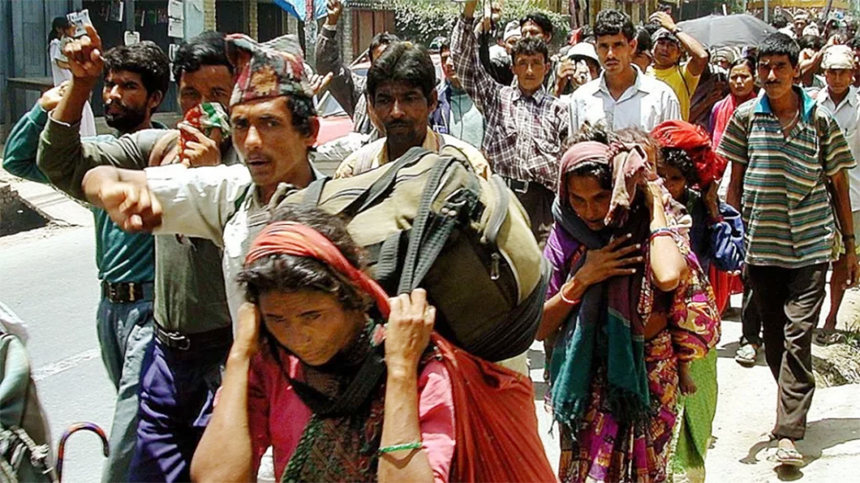Nepal war crime victims waiting for justice for 20 yrs

Deutsche Welle :
Thousands of people in Nepal are still waiting for justice 20 years after tens of thousands were tortured, raped, killed and forcibly disappeared during a decade-long bloody conflict between the Communist Party of Nepal (Maoist) and government forces.
Long-delayed amendments to legislation aimed at addressing the war crimes committed during the 1996-2006 civil war are expected to finally offer justice to victims like Laxmi Khadka.
Khadka last saw her husband, Dil Bahadur, on March 13, 2004, when they were eating dinner with their three children at home in their village in Bardiya district in western Nepal.
The meal was disrupted by a group of Maoist soldiers who entered their family home and dragged Bahadur outside, claiming they needed to “discuss some things.”
Two weeks later, a local newspaper reported that the Maoist group had “eliminated” Bahadur as a suspected enemy – although no evidence supported this claim, so Khadka refused to believe that he had been killed.
“He was an ordinary man who had returned home for a few days after months of working in India,” she told DW, recalling how she even went looking for her missing husband in the forests near their home.
“It was dangerous, not only because of wild animals but also due to the conflict,” she said.
The brutal Maoist insurgency, led by the Communist Party of Nepal (Maoist) to overthrow the monarchy, ended in 2006 with over 13,000 people dead and around 1,300 missing.
The government of Nepal and the Maoists signed the Comprehensive Peace Accord (CPA), which cleared the way for the establishment of two transitional justice mechanisms – the Truth and Reconciliation Commission (TRC) and the Commission of Investigation on Enforced Disappeared Persons (CIEDP).
The commissions were formed to address the human rights violations and crimes against humanity that were committed during the conflict, but they have faced legal challenges.
A 2015 Supreme Court ruling struck down parts of the law that established the TRC and CIEDP, “in particular because they were empowered to grant amnesties to perpetrators of serious crimes under international law,” according to Human Rights Watch.
“The law was weak, making it difficult for victims, human rights activists, and civil society to coordinate effectively with the commissions,” lawyer Om Prakash Aryal told DW.
